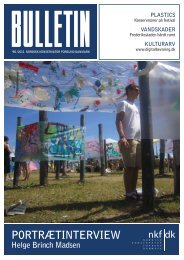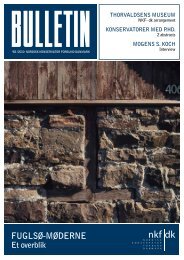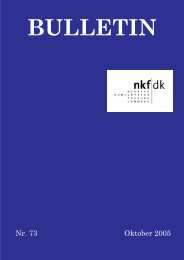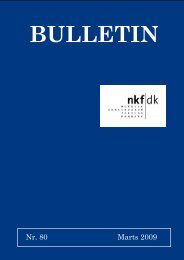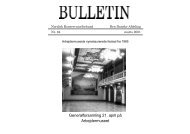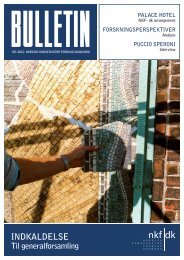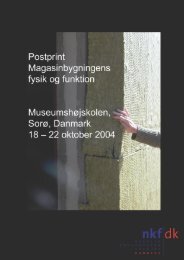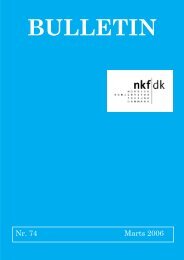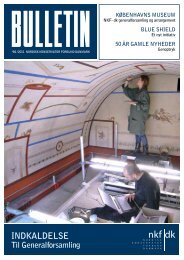dk nkf - Nordisk Konservatorforbund Danmark
dk nkf - Nordisk Konservatorforbund Danmark
dk nkf - Nordisk Konservatorforbund Danmark
Create successful ePaper yourself
Turn your PDF publications into a flip-book with our unique Google optimized e-Paper software.
DSCF 1304<br />
Preservation of mass-produced metal utility goods<br />
Photo; Swedish National Heritage Board<br />
below zero degrees centigrade to slow down chemical<br />
processes. Objects that can be expected to emit<br />
volatile gases must be kept separate and have good<br />
ventilation. Storage in non-oxygen environment can<br />
be an option for some types of plastics. This can<br />
be accomplished with AgeLess systems or special<br />
showcases containing an inert gas.<br />
To sum up, storage of plastics is complicated and<br />
demands special knowledge from the storage<br />
manager. It is also expensive because of the<br />
technical equipment, space and skilled personnel<br />
that are needed. We might also establish the fact<br />
that it is a rapidly growing problem, since plastics<br />
are the most common component in modern objects<br />
that are acquisitioned to the collections of cultural<br />
history museums.<br />
100<br />
Conclusion<br />
Collections of household utensils are large and<br />
common at nearly all cultural history museums,<br />
ranging from local historical houses to national<br />
museums. They tell us a lot about everyday life,<br />
production systems and changes in society. We may<br />
find the same objects made of different material, for<br />
example a plate made of wood and another made of<br />
metal or plastic, all with similar shape and use, but<br />
produced under different circumstances at different<br />
times. In many cases they have been so obvious and<br />
common that they have been disregarded as having<br />
interesting potential for scientific use, and neglected<br />
in the collections.<br />
The Swedish National Heritage Board has conducted<br />
two projects to raise awareness, as well as assemble<br />
and disseminate knowledge about this important<br />
part of our cultural heritage. The aim is to provide<br />
better requirements for the preservation of massproduced<br />
household utensils. The work has also<br />
raised awareness of the extensive problems expected<br />
DSCF 1305<br />
Plastic. Cultural heritage of tomorrow<br />
Photo; Swedish National Heritage Board



